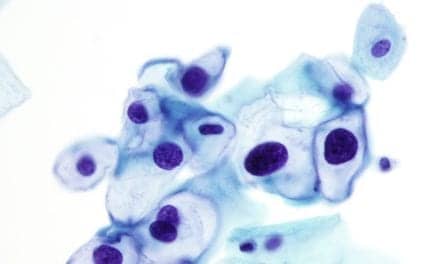Fast Track Diagnostics (FTD), a Siemens Healthineers company, has expanded its comprehensive sexually transmitted infections portfolio by adding an array of human papillomavirus (HPV) tests. By providing solutions for the detection of multiple strains of the virus, the company seeks to enable the utilization of molecular diagnostics in the field of precision medicine.
Real-time polymerase chain reaction (PCR) and reverse transcription PCR kits amplify the nucleic acids DNA and RNA, respectively, enabling clinicians to diagnose infections with just a small sample from patients. FTD’s multiplex real-time PCR kit detects HPV 16, HPV 18, and a pool of 12 other high-risk HPV subtypes, including an endogenous control.
“The FTD HPV high-risk assay was especially designed to meet the high-quality requirements of all laboratories to deliver accurate and specific diagnoses for precision medicine,” says Miriam Steimer, general manager of Fast Track Diagnostics. “Genotyping of HPV 16 and HPV 18 can provide valuable support in the appropriate diagnosis and followup testing of women at risk to develop cervical cancer.”
HPV is a double-stranded circular DNA virus that can be easily transmitted through sexual contact. HPV infection is one of the most common viral infections of the reproductive tract and is the major risk factor for the development of cervical carcinoma. From more than 150 known subtypes of HPV, 14 high-risk subtypes are responsible for nearly all cervical cancers, with HPV types 16 and 18 accounting for more than 70% of cases.1
“In offering a comprehensive portfolio of platform-agnostic assays, including those for sexually transmitted infections, FTD—now a Siemens Healthineers company—provides customers with the flexibility to diagnose a broad range of diseases, such as the many strains of HPV,” says Fernando Beils, head of molecular diagnostics at Siemens Healthineers. “This new assay provides a new precision medicine solution that can enable clinicians to better diagnose and treat these high-risk strains of HPV.”
Although more than 90% of HPV infections are resolved within 2 years, a small proportion of infections from any of the 14 high-risk HPV subtypes can persist and progress into neoplastic lesions. Cervical cancer screening based on cytology, despite being specific, has a high rate of false-negative results and often fails to prevent adenocarcinoma of the cervix.2
REFERENCES
- Groves IJ, Coleman N. Pathogenesis of human papillomavirus-associated mucosal disease. J Pathol. 2015;235(4):527–538; doi: 10.1002/path.4496.
- 2. Cuzick J, Clavel C, Petry KU, et al. Overview of the European and North American studies on HPV testing in primary cervical cancer screening. Int J Cancer. 2006;119(5):1095–1101; doi: 10.1002/ijc.21955




